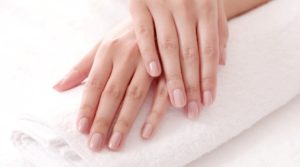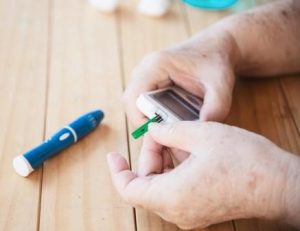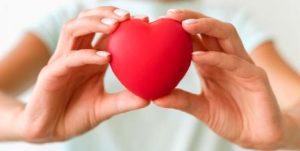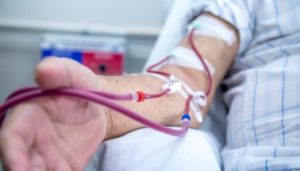Have you been facing hair fall issues for a while and are looking for effective ways to fix them? Are you struggling with brittle nails? Is your skin problem lowering your confidence each time? If yes, then biotin might be the answer for all your hair and skin woes!
Yes, you heard it right! Biotin is a kind of vitamin that is known to improve the health of your fingernails, hair, and skin.
In this article, we will tell you some health benefits of biotin, its food sources, recommended dosage, and potential side effects.
What Is Biotin?
Simply put, biotin belongs to the Vitamin B category. It is found in certain foods and aids the body in converting food into energy. Moreover, it promotes healthy hair and nails, supports a healthy pregnancy, as well as helps regulate blood sugar levels, etc.
Biotin is a water-soluble vitamin and since the body does not store water-soluble vitamins, people need to take them through their diets or even supplements.
Sources Of Biotin (Biotin Foods)
Now that you know what biotin is, let’s have a look at where can it be found. Usually, biotin can be found in various foods, such as:
- Liver & Kidney Meat
- Egg yolks
- Cheese
- Curd
- White Mushroom
- Oat Flakes
- Soya beans
- Leafy greens
- Cauliflower
- Apple
- Banana
- Nuts, etc.
Health Benefits Of Biotin
Taking biotin regularly can be beneficial for the health of your body. Some of the health benefits that biotin offers are:
1. Supports Metabolism

Consuming an adequate amount of biotin regularly can help in regulating and improving your body’s metabolism. Biotin uses the fat, proteins, and carbs available in the metabolism and converts them into energy.
2. Improves Skin Health

If you are struggling with various skin problems, then you need to increase your biotin intake!
According to studies, a biotin deficiency can make your skin red, scaly, and itchy. This condition is known as seborrheic dermatitis. Therefore, taking biotin can help in treating your skin problems.
Moreover, biotin makes the oil glands function properly and increases the production of fatty acids, which are required to nourish the skin.
3. Improves Nail Health

Brittle nails can be a sign of biotin deficiency. Therefore, people who have brittle nails should consider taking biotin supplements.
According to studies, taking a 2.5-milligram biotin supplement every day for 6 months can significantly increase nail thickness.
3. Makes Hair Healthy

Biotin can boost the production of keratin in hair and may increase the growth rate of the hair follicles. With its regular intake, you can improve your hair health. Moreover, biotin also aids in preventing various other hair issues such as hair loss, dandruff, and, itchy scalp, etc.
4. Support Pregnancy & Lactation

Biotin is required by pregnant women and nursing mothers since, during pregnancy, the biotin levels in the body can decrease. Therefore, pregnant women require more biotin be it from their diet or from taking supplements, of course under a doctor’s supervision.
5. Regulate Blood Sugar Levels

Biotin helps in regulating blood sugar levels in people with Type 2 diabetes by increasing the production of insulin and glucose in the body. Type 2 diabetes is a metabolic disorder in which the blood sugar levels increase and insulin function decreases.
6. Improves Heart Health

Consuming an adequate amount of biotin regularly can boost the blood flow inside the heart and prevent it from various problems. Biotin helps to increase high-density lipoprotein and decrease low-density lipoprotein, reducing cardiovascular risks.
7. Decrease Muscle Cramps In Dialysis Patients

In dialysis patients, biotin may help to alleviate muscle cramps. Muscle cramping is common in dialysis patients, owing to fluid loss. According to a study, taking biotin supplements may help to decrease this negative effect
Recommend Dosage
The FDA has not stated a recommended dosage for biotin. However, according to the National Institutes of Health, people who are 19 years old or above need to get 30 mcg of biotin daily. Most people can get this dosage through their diet itself.
Children and teenagers are advised to consume somewhere between 5-25 mcg daily. Moreover, breastfeeding mothers need to consume around 35 mcg every day.
People also take biotin supplements to improve hair health. However, biotin supplements must only be taken according to a doctor’s advice. Too much biotin in the body can cause side effects such as rashes, nausea, digestive and kidney problems, and abdominal cramping, etc.
FAQs
1. Can biotin pills cause acne and breakouts?
Taking biotin pills may cause acne and breakouts in some people. To prevent this acne, we advise you to drink lots of water along with taking biotin supplements. However, if your acne gets worse, immediately stop taking the capsules and talk to your doctor.
2. What is the ideal time to take a biotin supplement?
The best time to take a biotin supplement is on an empty stomach, that is, 1 hour before or 2 hours after your meals. Moreover, since digestion slows down while you sleep, taking a biotin supplement before bed won’t get absorbed in your body easily. Therefore, always take biotin during the day.
You May Also Like To Read:
Best Multivitamin Tablets In India
Best Antioxidant Tablets In India
Best Glutathione Tablets In India
Conclusion
In a nutshell, biotin is a type of vitamin B which plays an important part in the metabolism of carbohydrates, fats, and proteins. It also offers various other health benefits.
If you have a biotin deficiency, you can increase your biotin intake by eating foods rich in this vitamin or even going for biotin supplements. To make it easier for you, we have also made a list of the best biotin tablets for you. However, you need to consult your doctor to determine the right dosage for yourself.
By now, we hope you have all the important information about biotin. If you have any other questions, please type them in the comment section below. We will be happy to help you!


